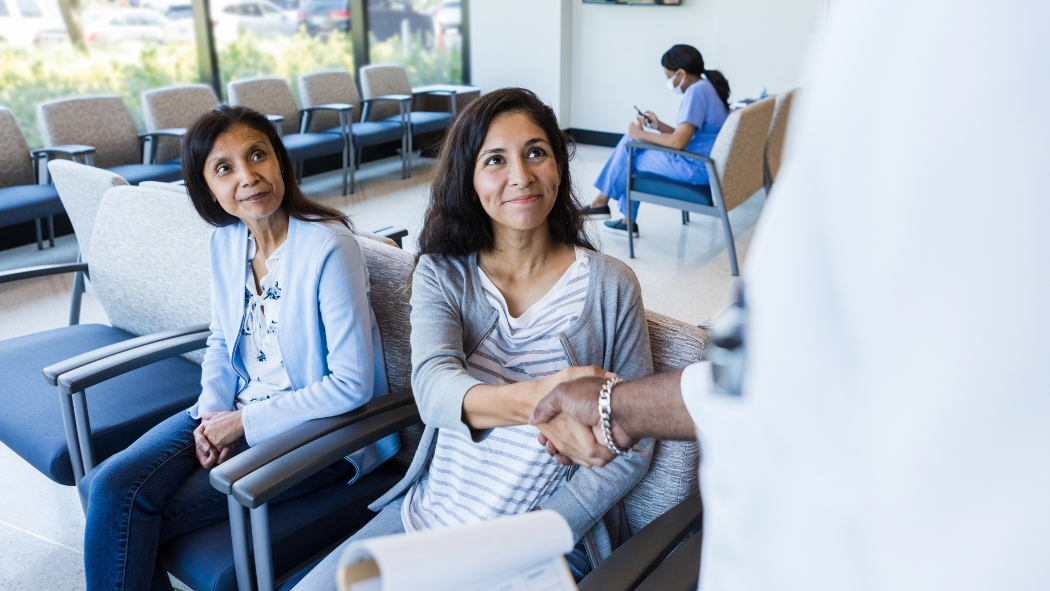Here are some tips on how to get the right help fast for a medical emergency or urgent health problem.

If you or someone you care about has a sudden health problem – whether it’s an emergency or not – it can be difficult to know where to turn for quick care. With options like emergency rooms, urgent care centers, and virtual care, choosing the right option can be confusing, and could result in unexpected costs.
Here are your choices when it comes to care:
Emergency rooms (ERs)
- Go here for very serious or life-threatening conditions, such as broken bones or bad injuries, chest pain, or trouble breathing.
- ER visits usually cost more out of pocket.
- You may experience longer wait times, so take steps to prevent exposure from other sick people in the waiting room (such as wearing a mask or staying at least 6 feet away from other people).
Urgent care centers
- Good for common problems that are not medical emergencies, like the flu, urinary tract infections, minor cuts, sprains, bruises, and animal bites.
- Many are open for extended hours and can offer X-rays and lab tests.
- They often cost less and have shorter wait times than an ER (you may even be able to schedule an appointment in advance).
Virtual care
- Use for non-emergency issues like small rashes, eye infections, sore throats, coughs, or cold symptoms without a high fever.
- You can talk to a doctor online from home, when it is convenient for you.
- Appointments often cost less, with many charged a flat rate (for example, many Cigna Healthcare plans offer a $0 copay).

Before you go: Ask if the place or service you want to use is covered by your health insurance plan. Many plans, including Cigna Healthcare, can give you information about their network of doctors, clinics, and hospitals on their website, mobile app, and by calling their 24-hour phone line.
When to call 911
Call 911 if someone has:
- A very bad injury, like a head injury from a fall.
- Heavy bleeding.
- Suddenly passed out and cannot be woken up.
- Chest pain or trouble breathing (could be a heart attack).
- Face drooping, trouble speaking, and feeling weak in the arms or legs (could be a stroke).
For children, call 911 if:
- They keep throwing up or have diarrhea and seem very sleepy or confused.
- They have trouble breathing.
- Infants less than 2 months old have a fever of 100.4°F (38°C) or higher.
Keep in mind: 911 is the national phone number to call in an emergency if you or someone else needs help from the police, the fire department, or ambulance services. If an ambulance is needed, it will usually take the person to the closest ER. You typically cannot choose which ER or hospital the ambulance will go to.
How to prepare for medical emergencies
Because many emergencies occur at home, you should plan to "know before you go.”
- Know how to reach your doctor after hours. If there’s an emergency, your doctor or their staff can help you decide if you should go to the emergency room, an urgent care center, or wait and see your doctor in person or online the next day.
- Find out which hospitals are close to you in case you need to go to the ER quickly. Check that they are covered by your health insurance and ask your doctor if they work at those hospitals or if they would go there themselves or send their family there.
For kids:
- Keep the doctor’s phone number (during and after office hours) on the refrigerator or somewhere easy to find.
- Find out which hospitals your child’s doctor works with or sends patients to and keep that information with the doctor’s number.
- Make sure babysitters or family members know how to call the doctor and how to get to the nearest hospital.
- Even if you are not sure if the kid has an emergency, play it safe and call the doctor’s office for medical advice. Tell other family members and babysitters to do the same.

Better Everyday Moments
Browse our educational resources to better understand health insurance, make more informed choices, and feel confident about your coverage.